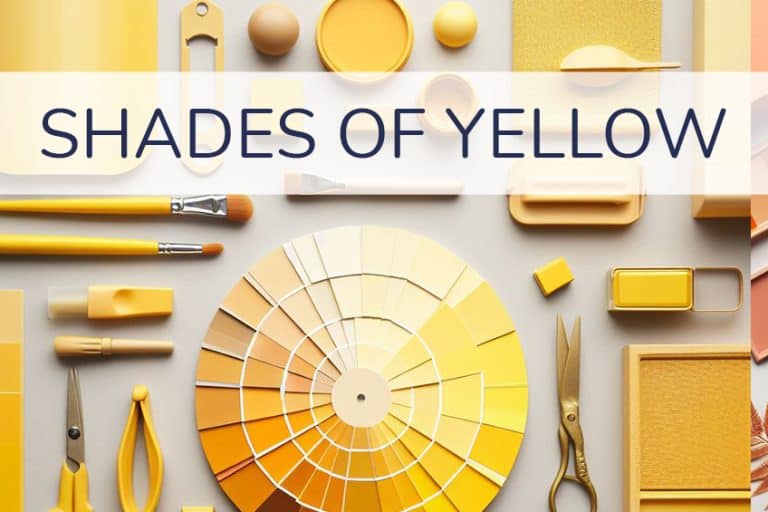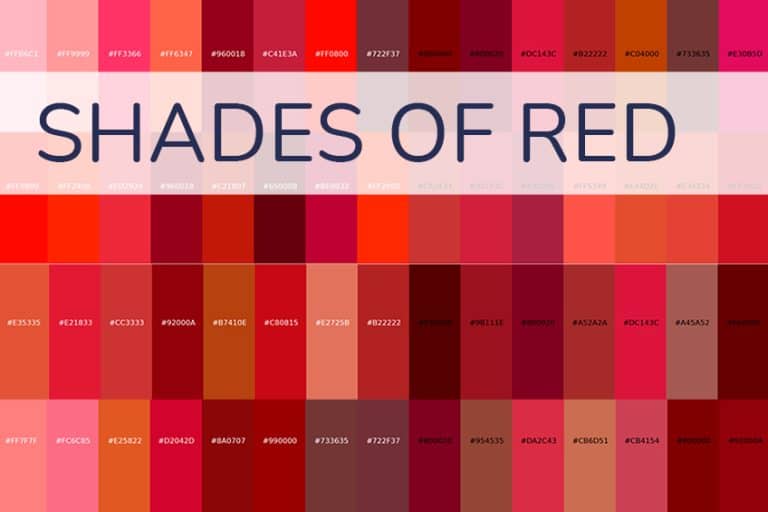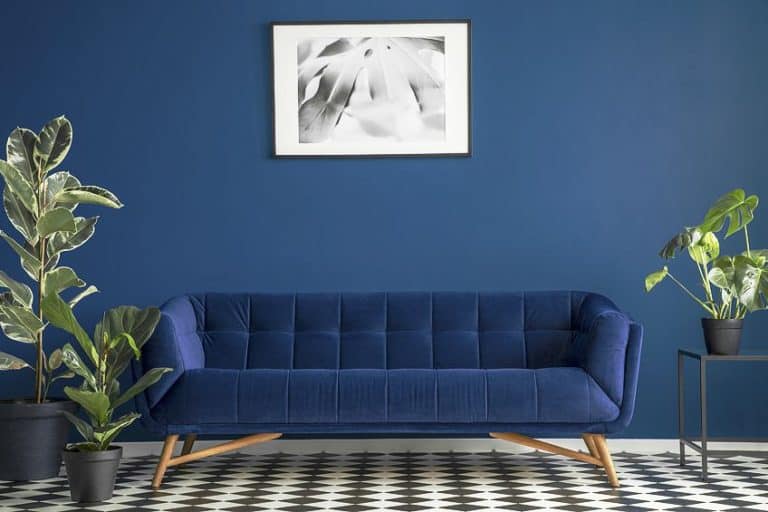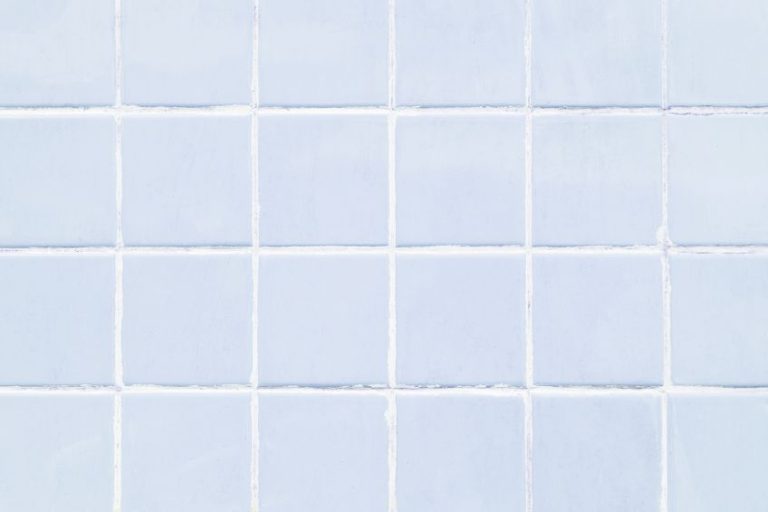Azure Blue Color – Learn All About the Various Shades of Azure
When someone mentions the word azure, it conjures up images of crystal clear water and wide open blue skies. As a shade of blue, the azure blue color is a particular favorite among many. There are also shades of azure you can choose from. Below we will be discussing a few more interesting facts about the azure blue color.
Description of Azure Blue
What color is azure? Azure blue belongs to the blue family of colors and when looking at the visible light spectrum, can be found between blue and cyan. The color is often used as a description of the sky on a sunny and clear day. The azure-blue color can be described as being a little lighter than blue and more vibrant than dark blue. The color is said to be derived from the lapis lazuli stone. Besides the stone, the azure color can also be found in many different types of insects and birds.
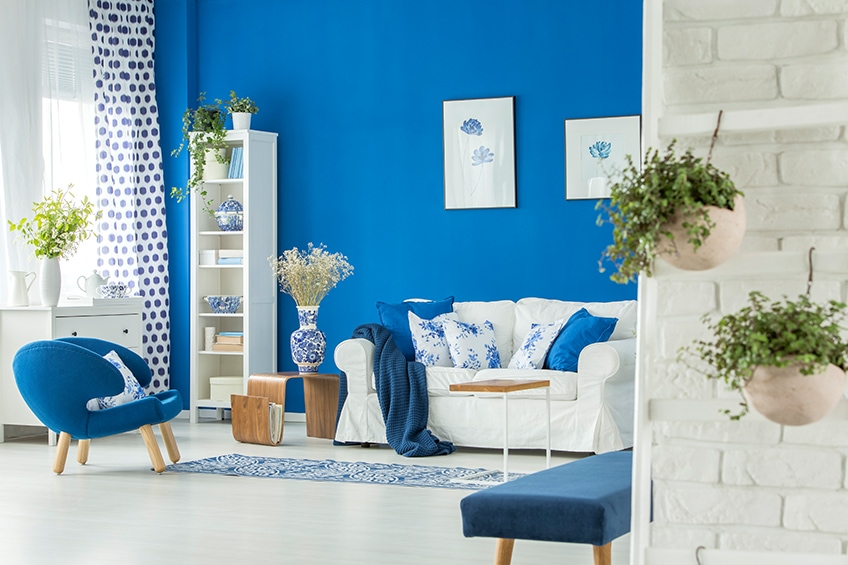
When mixing paint colors, azure blue remains between blue and cyan, however, many experts say there is also a hint of purple. When looking at colors on websites and for printing, there are different color codes used to display the varying amounts of colors used. The hex code also helps to identify colors, in this case, the azure blue color code is #007fff. Most consider azure to be a color on its own and distinct from blue. However, there is a range of azure colors, so you might find different hex codes also indicating this color.
| Azure Shade | Azure Hex Code | CMYK Azure Color Code (%) | RGB Azure Color Code | Azure Color |
| Azure Blue | #007fff | 100, 50, 0, 0 | 0, 127, 255 | |
| Blue | #0000ff | 100, 100, 0, 0 | 0, 0, 255 | |
| Dark Blue | #00008b | 100, 100, 0, 45 | 0, 0, 139 |
A Brief History: Azure Blue Color
The azure blue color gets its name from a blue mineral known as lapis lazuli. Lazuli is a medieval Latin word that comes from lazaward in Arabic, which is the name of the Persian stone. Azure comes from the French, who mistranslated the Arabic word. The name azure was first documented as a color in 1374 by Geoffery Chaucer, in his poem Troilus and Criseyde (completed around the 1380s).
Some get confused with azurite and lapis lazuli. Lapis is Latin for the word “stone”, and you have lapis linguis, which is known as azurite. However, you also have lapis lazuli, also referred to as lazurite. Both of these are blue stones, which have a distinctive azure color. However, azurite does tend to have more of a deeper azure blue color.
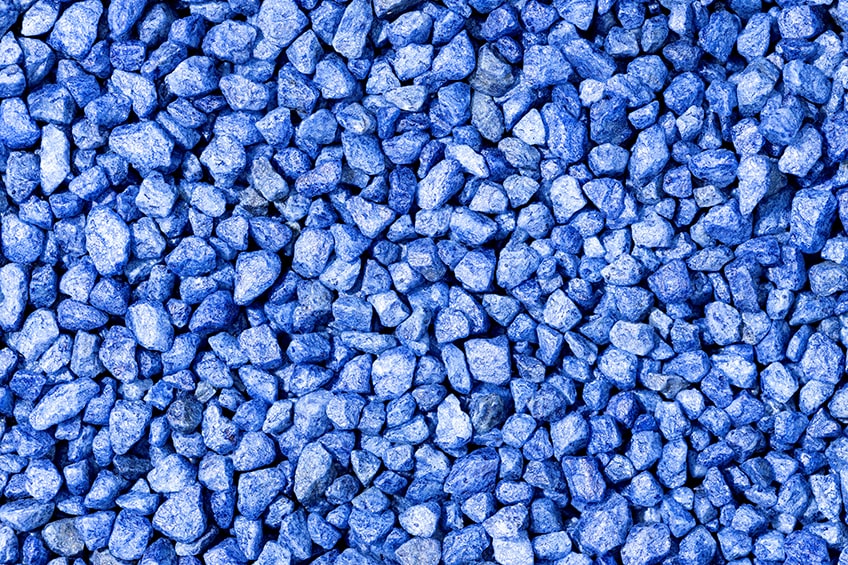
During the Renaissance period in Europe, lapis lazuli was very expensive due to the process of obtaining the blue pigment, and the final yield was extremely small. Many also refer to this deep blue pigment from the lapis lazuli as ultramarine blue.
In many of the old paintings, azurite and lapis lazuli have been incorrectly labeled, as some of the azurite blue pigments have been mistakenly identified as lapis lazuli. Sometimes, both pigments have been used in paintings, the cheaper azurite was used as an underpainting, while the more expensive lapis lazuli was used in the glazes.
Azurite was often used since antiquity and was very popular during the 15th and 17th centuries in European paintings. Crushed azurite was a popular pigment used by Ancient Egyptian artisans, and the pigment has also appeared on the walls in China cave paintings. However, since the beginning of the 18th century, when Prussian blue came into the picture, pigments from azurite have disappeared.
When creating the pigment, the azurite was ground coarsely, to help preserve the beautiful deep blue color. The fine-ground azurite produced a lighter blue color. You can see the azurite blue in A View of Het Steen in the Early Morning (1636) by Sir Peter Paul Rubens. The azurite blue color is evident in the beautiful sky. Today, the United Nations uses the color and have called it “United Nations Azure”. Not only in the flag, but the color is also part of the uniform in the blue beret.
Meaning of the Azure Blue Color
Since azure is part of the blue family, it has similar associations and meanings as the color blue. The color is calming and reminds us of open spaces, blue skies, and oceans. The azure color is also soothing and refreshing and is associated with cleanliness. Blue colors, including azure, are also linked to intelligence, confidence, trust, responsibility, logic, and loyalty. The color can help to encourage more thoughtful and deep thinking.
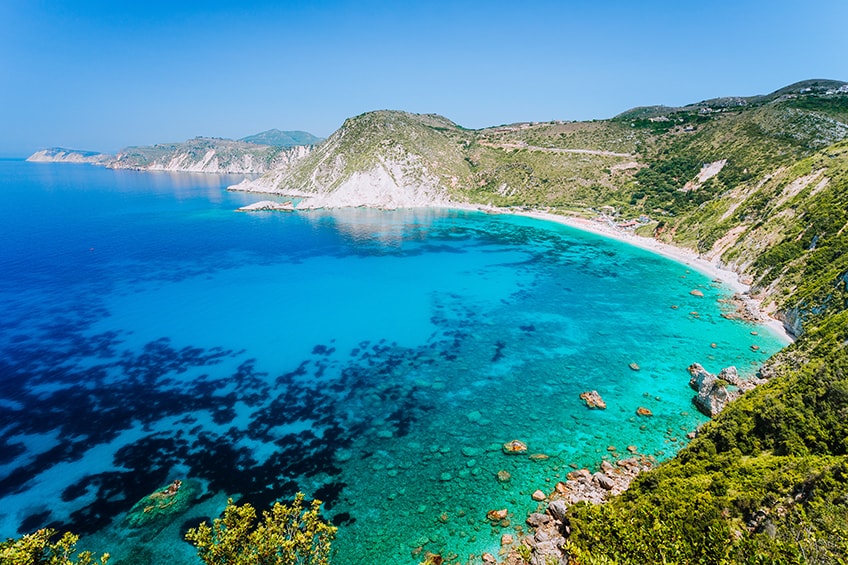
The azure blue color can also be reminiscent of paradise, and tranquility and helps to promote relaxation. Overuse is mainly associated with being cold, unstable, and weak. Blue, in general, can also be linked to depression and unfaithfulness. However, overall, the azure blue color is that of contentment and is simply pleasant to look at.
Shades of Azure
There are a few different shades of azure from dark azure blue to pale and royal azure blue. So, if you do not like a particular azure blue color, you can easily try something darker or lighter to fit the mood. Each of these shades has its own azure blue color code for both printing purposes as well as webpages. These will be the CMYK (cyan, magenta, yellow, and black) and RGB (red, green, and blue) color codes respectively, and represents the percentage of each color that creates azure. This information is important for anyone in the graphic design business.
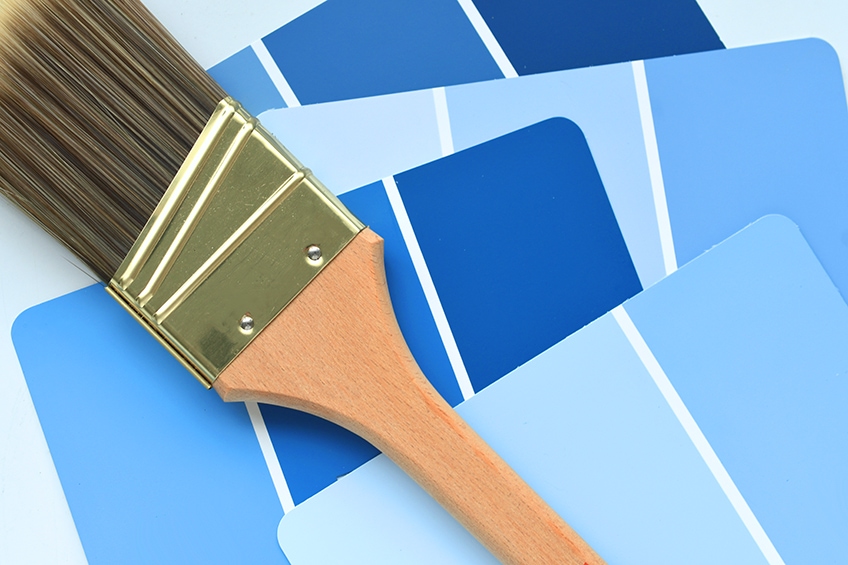
Lapis Lazuli
This particular shade is more of a dark azure blue and is a representation of the actual lapis lazuli gemstone. When compared to the azure blue color, it does seem to have more of a purple undertone. This color can sometimes be confused with indigo; however, these are completely separate colors.
| Azure Shade | Azure Hex Code | CMYK Azure Color Code (%) | RGB Azure Color Code | Azure Color |
| Lapis Lazuli | #26619c | 76, 38, 0, 39 | 38, 97, 156 |
Royal Azure Blue
This is a rich tone of azure blue and can also be described as being a dark blue color. If you are working on graphics or the RGB azure blue color code, the color contains zero red, 22 percent green, and 65.9 percent blue.
| Azure Shade | Azure Hex Code | CMYK Azure Color Code (%) | RGB Azure Color Code | Azure Color |
| Royal Azure Blue | #0038a8 | 100, 67, 0, 34 | 0, 56, 168 |
Alice Blue
Going to the light side of the spectrum, this color can be described as being a pale shade of azure. The hue was the preferred color of Alice Roosevelt Longworth, Theodore Roosevelt’s daughter. She was also a painter and because of her position and exposure to the public, began a fashion trend. This particular shade of azure is also a part of the original X11 web colors and is often referred to as white blue.
| Azure Shade | Azure Hex Code | CMYK Azure Color Code (%) | RGB Azure Color Code | Azure Color |
| Alice Blue | #f0f8ff | 6, 3, 0, 0 | 240, 248, 255 |
Azure Blue Color Combinations
Azure is a vibrant shade of blue that also comes in a variety of shades and tones. Blue is quite a versatile color and, generally, goes with many different colors. To get the best color combinations, you can bring out the color wheel. Each color combination can be found in different positions and forms on the color wheel.
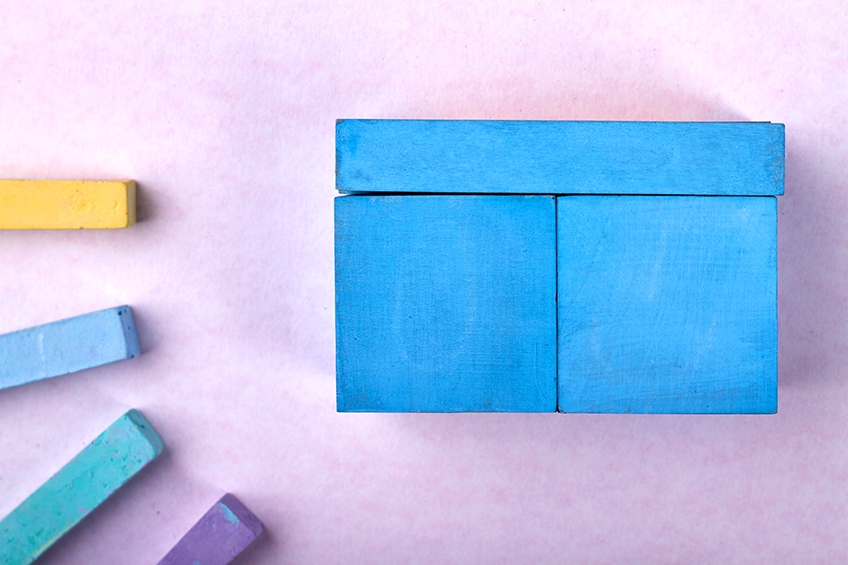
Complementary Azure Colors
To make the azure blue color stand out, it is always a good idea to pair it with colors that sit on the opposite side of the color wheel. In this case, the color chosen below is a vibrant orange. If you are using contrasting colors like these in a design, you should consider using a single vibrant color, and use any other colors in moderation or as an accent color. There are color combinations that include four or more colors, for example, tetradic colors, but we will be only going up to three color combinations below.
| Shade | Hex Code | CMYK Color Code (%) | RGB Color Code | Color |
| Azure Blue | #007fff | 100, 50, 0, 0 | 0, 127, 255 | |
| Orange | #ff8000 | 0, 50, 100, 0 | 255, 128, 0 |
Analogous Colors
These are colors on the same side of the color wheel and are found close to each other. Since Azure is found in between cyan and blue, it is safe to say that these colors are analogous to the azure blue color.
| Shade | Hex Code | CMYK Color Code (%) | RGB Color Code | Color |
| Azure Blue | #007fff | 100, 50, 0, 0 | 0, 127, 255 | |
| Cyan | #00ffff | 100, 0, 0, 0 | 0, 255, 255 | |
| Blue | #0000ff | 100, 100, 0, 0 | 0, 0, 255 |
Monochromatic Colors
When you take a single color, like azure blue, and you use different shades and tones of this particular color, you are creating a monochromatic color scheme. So, you will see below in the table, a lighter and darker version of azure blue.
| Shade | Hex Code | CMYK Color Code (%) | RGB Color Code | Color |
| Azure Blue | #007fff | 100, 50, 0, 0 | 0, 127, 255 | |
| Light Blue | #4da5ff | 70, 35, 0, 0 | 77, 165, 255 | |
| Strong blue | #0059b3 | 100, 50, 0, 30 | 0, 89, 179 |
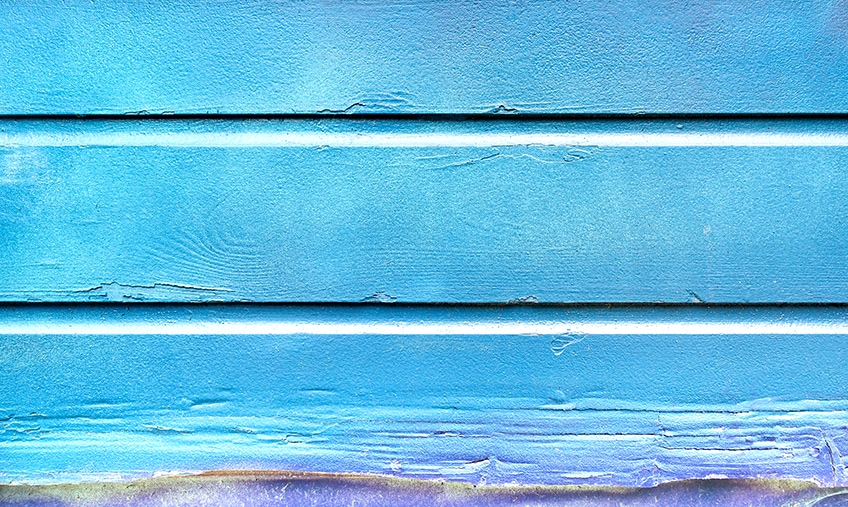
Triadic Colors
This is another color combination that offers contrast and allows each color to stand out. On the color wheel, the colors form an equal-sided triangle shape, making it easier to find. Again, it is best to use a single main color, while the others work as accent colors.
| Shade | Hex Code | CMYK Color Code (%) | RGB Color Code | Color |
| Azure Blue | #007fff | 100, 50, 0, 0 | 0, 127, 255 | |
| Chartreuse | #7fff00 | 50, 0, 100, 0 | 127, 255, 0 | |
| Rose | #ff007f | 0, 100, 50, 0 | 255, 0, 127 |
Mixing Azure Blue Paints
You could achieve the azure blue color by blending green and blue to create a cyan color and then add in a small amount of purple like indigo, which is more of a deep blue and violet color. Green is not a primary color, so to avoid any issues, it might be best to create your own green.
Green is a blend of yellow and blue, so you will have more control over the amount of yellow that goes into the azure blend. You can regulate the color temperature by making it warmer or cooler. Adding more yellow will create a warmer color, just remember to keep it subtle by adding small amounts, otherwise, you will lean more toward green. Add more blue to keep things cooler.
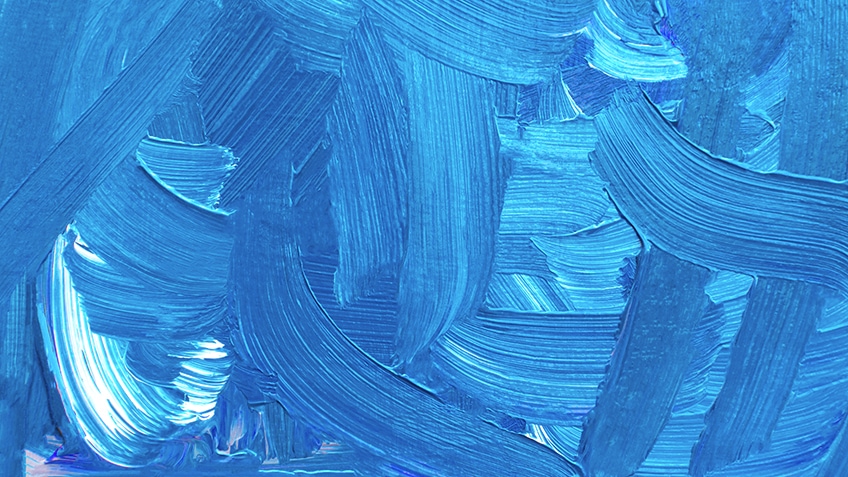
Many paints you purchase in a tube are also warmer or cooler. For example, ultramarine blue is considered a warmer blue, while cerulean blue is more of a greenish, cool blue color. Again, azure has a slight purple undertone, so you could also create your own purple color, which is a blend of red and blue. This then provides more control over the amount of red color added.
Many professionals claim that azure is more of a bright blue, without the purple undertone, so you can leave out the purple if you want. You can try various proportions, just remember to create a color palette when experimenting, so you can refer back to the color chart when you need to.
Designing With Azure Blue
Azure blue is a popular color that can grab your attention, so it is the perfect color when used for advertising. Azure blue can also make beautiful outfits and fashion accessories. When considering interior design, all shades of blue have universal appeal. Blue can go with virtually any color, and you can use any shade of azure blue you want. Try the most vibrant and bold azure blue color as an accent color or use a pale azure as your base or neutral color.
You can use azure blue in any room, but since it is relaxing, it does have a certain appeal in the bedroom. Azure blue goes especially well with white, gray, and other more neutral colors. However, it can stand out when placed next to shades of orange and yellow. When using a color scheme, you should consider the 60-30-10 rule, where your main color takes up most of the space, while the other colors come in as accents.
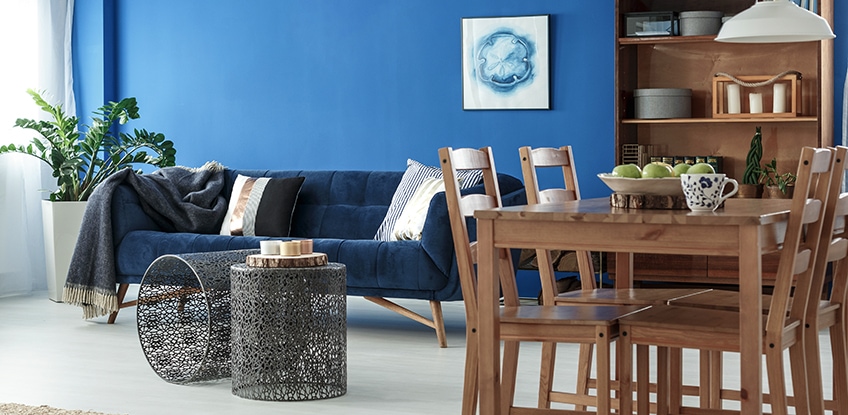
Even though blue is a versatile color, to create a more balanced look, it should not be overused. Try to use accent walls and furniture to bring in the color. Remember, you can also use different patterns and textures on fabrics. Accessories are always great when bringing in some color to a neutral background. For example, cushions, rugs, vases, drapes, and even appliances in the kitchen.
Conclusion
Whether it is a bright azure blue color or dark azure blue, this color does stand out amongst other shades of blue. A relaxing and refreshing color that can easily be used in graphic and interior designs. Not only is the color ideal for a corporate image, but it is also perfect for that holiday house on the beach.
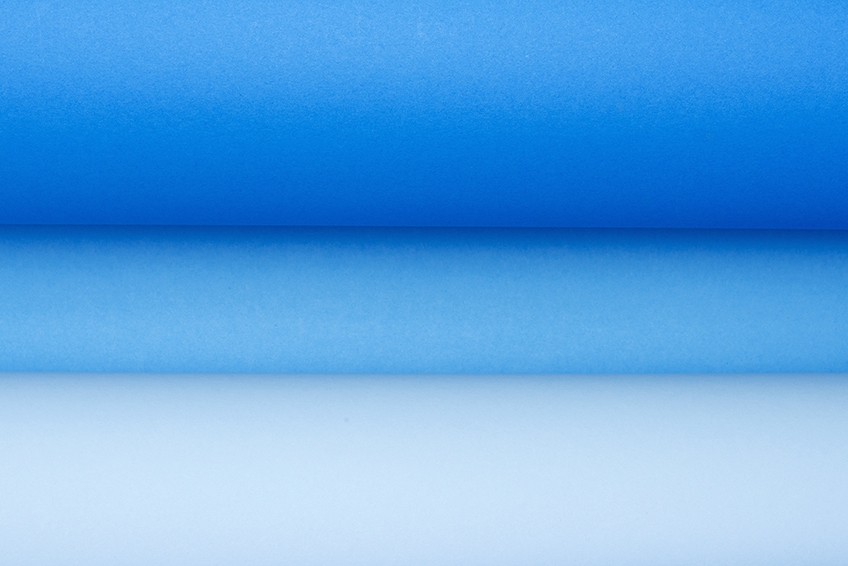
Frequently Asked Questions
What Color Is Azure?
The azure blue color can be described as being a blend of blue and green or cyan since it is located between these colors on the color wheel. Azure blue is also a cool color and is often used to describe the sky on a clear and sunny day.
Where Does the Azure Color Name Come From?
Azure is French in origin and means sky blue. However, this was derived from an Arabic word, which was used to describe the color of the stone lapis lazuli. From French, the name eventually made it through to the English language.
How to Mix Azure Blue Acrylic Paint?
The quickest way to create an azure-blue color is to mix blue-violet paint with some white paint since many experts say that azure has a slight purple tint to it. You could also purchase an azure blue color already in a tube or bottle.
In 2005, Charlene completed her Wellness Diplomas in Therapeutic Aromatherapy and Reflexology from the International School of Reflexology and Meridian Therapy. She worked for a company offering corporate wellness programs for a couple of years, before opening up her own therapy practice. It was in 2015 that a friend, who was a digital marketer, asked her to join her company as a content creator, and this is where she found her excitement for writing.
Since joining the content writing world, she has gained a lot of experience over the years writing on a diverse selection of topics, from beauty, health, wellness, travel, and more. Due to various circumstances, she had to close her therapy practice and is now a full-time freelance writer. Being a creative person, she could not pass up the opportunity to contribute to the Art in Context team, where is was in her element, writing about a variety of art and craft topics. Contributing articles for over three years now, her knowledge in this area has grown, and she has gotten to explore her creativity and improve her research and writing skills.
Charlene Lewis has been working for artincontext.org since the relaunch in 2020. She is an experienced writer and mainly focuses on the topics of color theory, painting and drawing.
Learn more about Charlene Lewis and the Art in Context Team.
Cite this Article
Charlene, Lewis, “Azure Blue Color – Learn All About the Various Shades of Azure.” Art in Context. November 3, 2022. URL: https://artincontext.org/azure-blue-color/
Lewis, C. (2022, 3 November). Azure Blue Color – Learn All About the Various Shades of Azure. Art in Context. https://artincontext.org/azure-blue-color/
Lewis, Charlene. “Azure Blue Color – Learn All About the Various Shades of Azure.” Art in Context, November 3, 2022. https://artincontext.org/azure-blue-color/.




